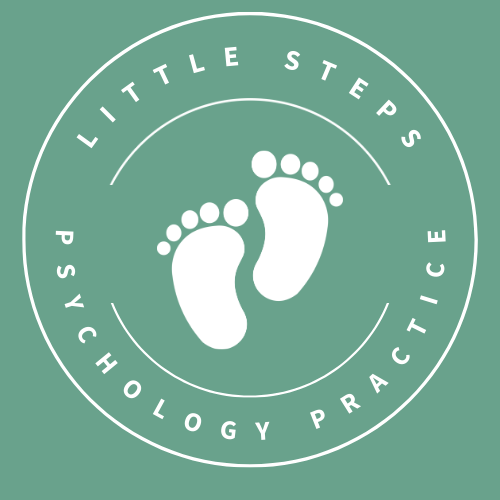Support Options During Pregnancy: A Guide to Getting Help For Your Antenatal Mental Health
Pregnancy is often described as a joyful time, yet for many people it is emotionally complex. Anxiety, low mood, fear, disconnection, or emotional overwhelm are common during pregnancy, and they deserve attention and care.
This blog explains the main antenatal mental health support options in the UK, what they offer, and how they can help.
Antenatal Mental Health in January: When Pregnancy Feels Emotionally Harder Than Expected
January is often framed as a time of fresh starts, hope, and optimism. For many people, pregnancy is assumed to fit neatly into that narrative - a joyful beginning, something to feel grateful for, or something to celebrate. But for a significant number of expectant parents, January can feel emotionally heavier rather than hopeful.
This blog discusses how antenatal mental health challenges are far more common than many people realise, and why parents deserve care, understanding, and support during pregnancy, not just after birth.
Holding Space for Grief and Joy: Parenting Young Children Through the Festive Season
Parenting while grieving is complex. You’re trying to hold space for joy because your children deserve it… whilst also honouring your sadness, your memories, and the traditions that once anchored you. You might find yourself triggered by moments you didn’t expect: a smell, a Christmas song, a familiar dish, or the sight of other families sharing moments you wish you still had.
This blog explores how grief shows up in the festive season and offers strategies to manage your emotional wellbeing whilst parenting young children. You are not alone in navigating this bittersweet time.
Letting Go of the Perfect Christmas: Giving Yourself Permission To Be A “Good Enough” Parent
Every year, as Christmas approaches, many parents begin to feel a familiar tightness in their chest. The lists, the school events, the costumes, the presents, the food planning, the wrapping, the endless remembering – it all piles up.
In this blog, we’ll explore the invisible load of Christmas, why it feels so intense, and offer 10 psychologically-informed strategies to help you navigate the holiday season.
Understanding and Managing Anxiety in Parenthood
Anxiety is a normal human emotion – one we all experience at different points in life. But during pregnancy, after birth, and throughout the early years of parenting, anxiety can often feel louder, more intense, and harder to manage.
In this blog, we’ll explore what anxiety looks like, how common it is across parenthood, and our 6 top gentle, effective ways to soothe your mind and body when anxiety takes hold.
Baby Loss Awareness Week: Honouring Every Story, Holding Space for Every Family
Each year, from 9th to 15th October, people across the UK and around the world come together for Baby Loss Awareness Week – a time to remember babies who have died during pregnancy, at or soon after birth, or in infancy.
It’s a week for remembrance, reflection, and connection. A time to honour every story, raise awareness of the many forms of loss, and support families navigating grief in all its complexity.
In this blog, we’ll explore the many forms of baby loss, how grief can feel after baby loss, ways of supporting yourself and your loved ones, and ways to acknowledge your baby.
The Importance of Making Black Mothers and Birthing People Visible
Pregnancy and new motherhood can be some of the most joyful, yet vulnerable times in a woman’s life. But for Black mothers, these experiences are too often shadowed by systemic inequality, discrimination, and neglect. Black Maternal Mental Health Week exists to amplify their voices, shine a light on the disparities they face, and demand action. Making Black mothers visible is not just about statistics, it is about dignity, justice, and saving lives.
In this blog, we’ll explore the reality of maternal health inequalities, how this can impact Black women and birthing people across pregnancy, birth, and the postnatal period, and what steps are needed towards equity and support.
Relationship Challenges After Your Baby is Born: Staying Connected Through Change
Bringing a new baby into the world is often described as a time of joy, bonding, and love. Whilst this is true, what is often left out of antenatal classes and birth preparation is the profound impact a baby can have on a couple’s relationship. Many new parents are surprised to find themselves struggling, not only with sleep deprivation and the demands of caring for their infant, but also with changes in how they feel towards each other.
In this blog, we’ll explore why couples struggle after having a baby, the most common relationship challenges that parents face, ways of staying connected after having a baby, and how to get through such a life-changing time together.
Beyond the NICU: Supporting Parents After Discharge
Walking out of the hospital doors with your baby in your arms is a moment many NICU parents dream of. After days, weeks, or sometimes months spent beside incubators and monitors, the idea of finally going home can feel like crossing a finish line. Friends and family often celebrate with joy, assuming that the hardest part is over.
But for many parents, leaving the Neonatal Intensive Care Unit (NICU) is just the beginning of a new chapter – one that can bring unexpected challenges.
In this blog, we will explore what life beyond the NICU can feel like, why it’s not always as simple as “everything is fine now” , and ways you can support your emotional wellbeing in the weeks and months after discharge.
When Pregnancy Doesn’t Feel Magical: Understanding Antenatal Anxiety and Depression
Pregnancy is often described as a time of joy, excitement, and glowing anticipation. Social media feeds and glossy magazines tend to show smiling bumps, blissful couples, and a picture-perfect journey towards parenthood.
But what if your experience looks very different? What if you don’t feel happy, are constantly worried, or struggle to feel connected to your baby?
In this blog, we’ll explore what antenatal anxiety and depression are, why they happen, and how you can find ways to cope and seek support.
Life in the NICU: What Every Parent Should Know
When you picture bringing your baby into the world, your mind might wander to the first cuddle, the smell of newborn skin, or taking them home in a tiny sleepsuit. For many families, however, those first moments look very different. Instead of leaving the hospital with your baby in your arms, you may find yourself stepping into the Neonatal Intensive Care Unit (NICU).
In this blog, we will walk you through what the NICU is, what to expect emotionally, and gentle ways to care for yourself while your baby receives the care they need.
Restraint Collapse in Children: Why Meltdowns Happen After Nursery and School
Starting nursery or reception is a big milestone for children, and for parents too. It’s often filled with excitement, new friendships, and learning opportunities. But for many families, it also comes with a less talked-about challenge: restraint collapse.
In this blog, we’ll explore what restraint collapse is, why it happens, what it looks like, and most importantly, how to support your child and yourself through this transition.
Do I Have Postnatal Depression or the Baby Blues?
Welcoming a new baby is often described as one of the happiest times in life. But the reality for many new parents is that the early weeks can feel overwhelming, emotional, and even frightening. It’s common to feel overwhelmed, tearful, or anxious after giving birth, and this can leave new parents wondering: “Is this just the baby blues, or could it be postnatal depression?”
In this blog, we’ll explore the difference between the baby blues and postnatal depression (PND), how to recognise the signs, and where to find support if you’re struggling.
Preparing Your Child for Their First Day of Reception: A Guide for Parents
Starting school is one of the biggest milestones in a child’s early years. The first day of reception often brings a mixture of excitement, pride, and nerves for children and parents alike. Walking into the classroom for the first time, meeting a new teacher, and saying goodbye at the school gate can stir up big emotions.
In this blog, we’ll explore why the first day of reception can feel overwhelming, signs your child might be anxious, strategies to prepare you and your child emotionally and practically, and when to seek extra support.















